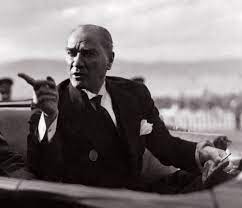The Greatest Leaders Who Changed History
Throughout human history, exceptional leaders have emerged to guide nations, inspire movements, and transform societies. These influential leaders possessed unique combinations of vision, charisma, strategic thinking, and the ability to mobilize others toward common goals. From ancient emperors who built vast civilizations to modern revolutionaries who fought for freedom and equality, history's most influential leaders have left indelible marks on humanity.
The study of influential leaders reveals patterns of leadership excellence that transcend time periods and cultures. Whether they led through military conquest, political innovation, spiritual guidance, or social reform, these remarkable individuals demonstrated the power of leadership to create lasting change. Understanding their methods, motivations, and legacies provides valuable insights into the nature of effective leadership and its impact on human civilization.
5000+
Years of Leadership History
100+
Documented Influential Leaders
50+
Nations and Empires Shaped
Billions
Lives Impacted
Top 20 Most Influential Leaders in World History
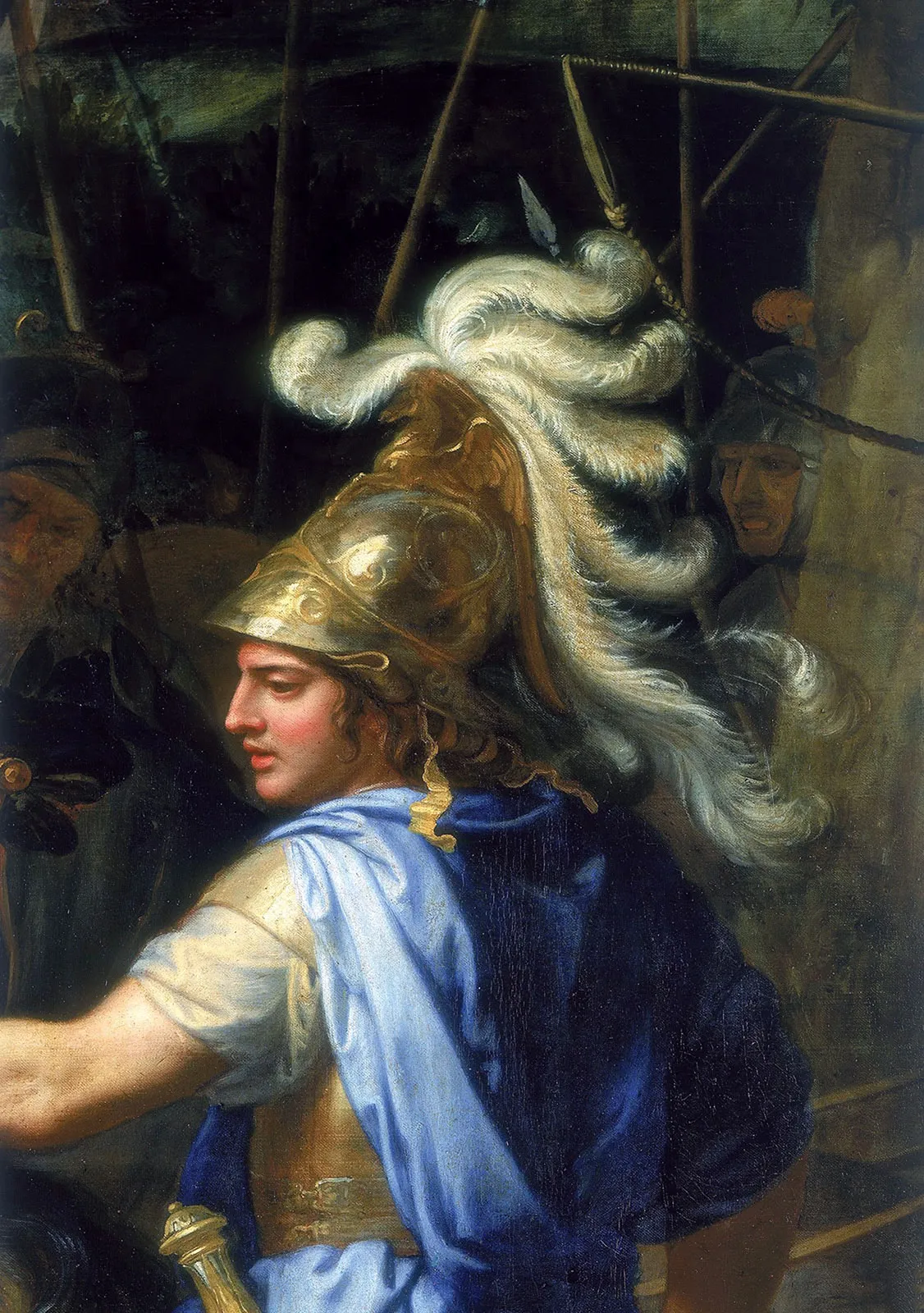
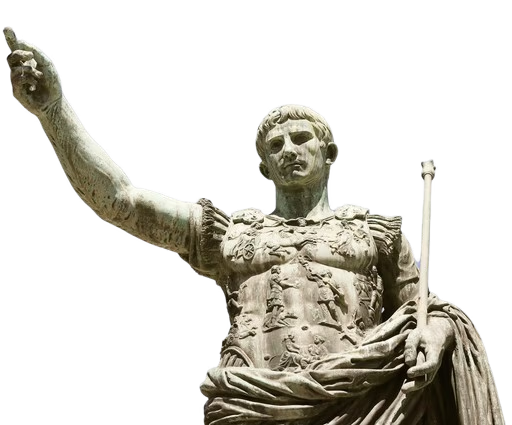

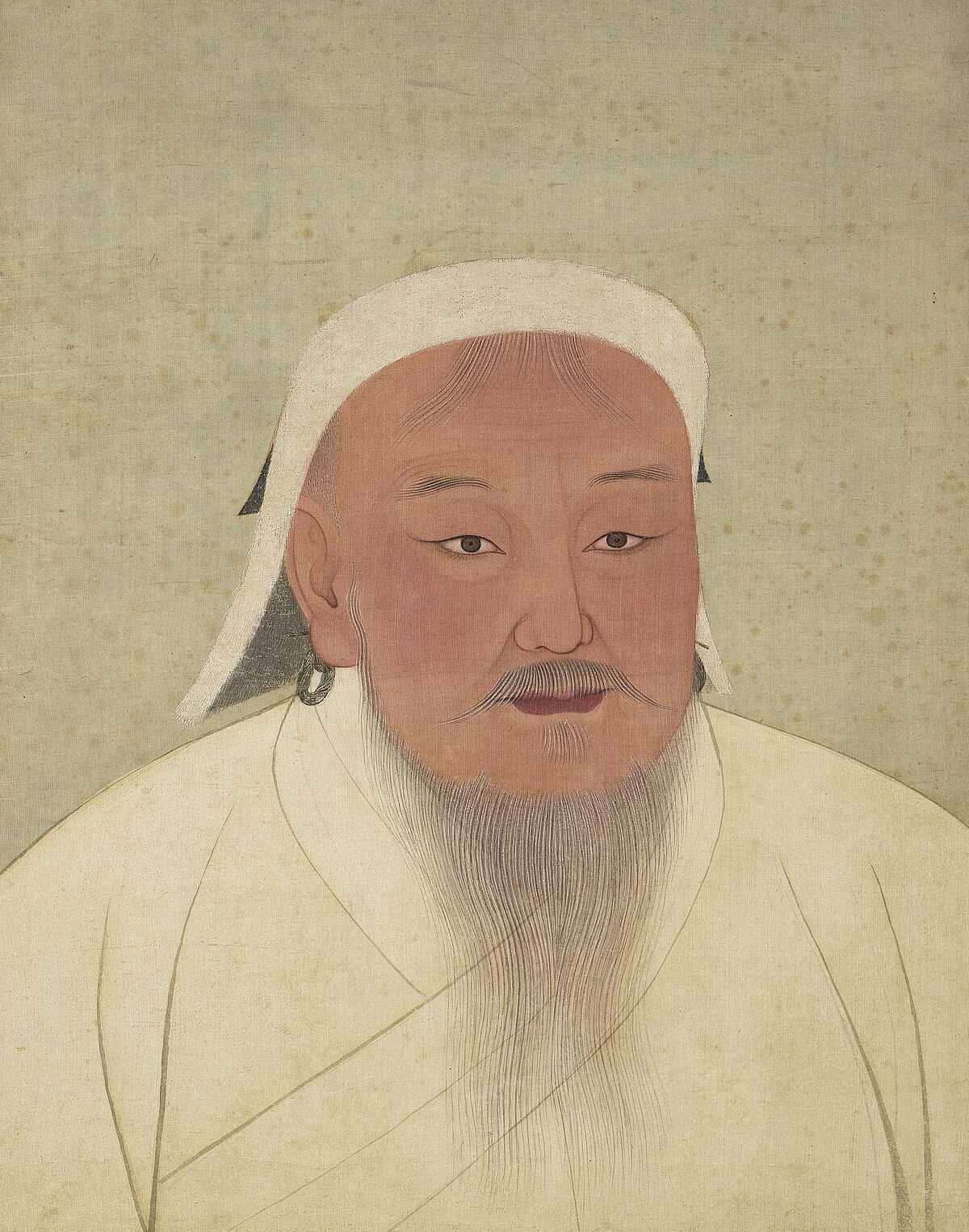







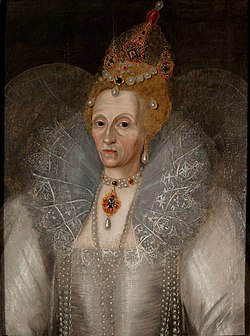


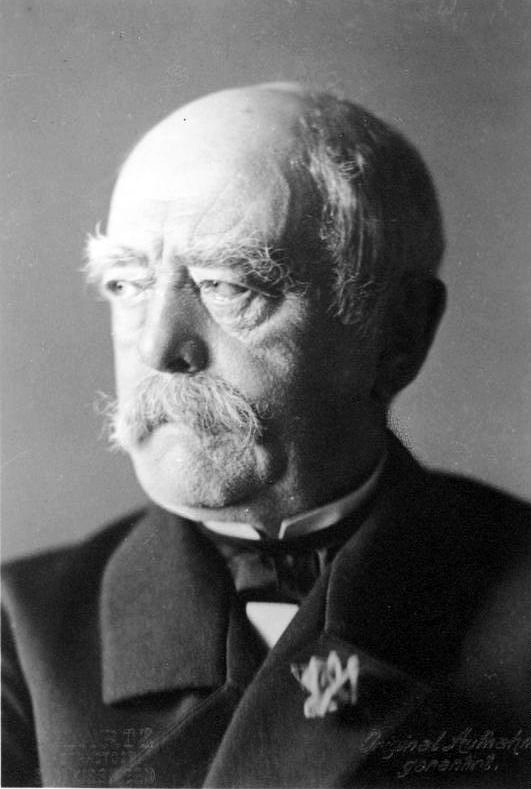
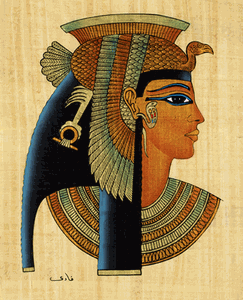
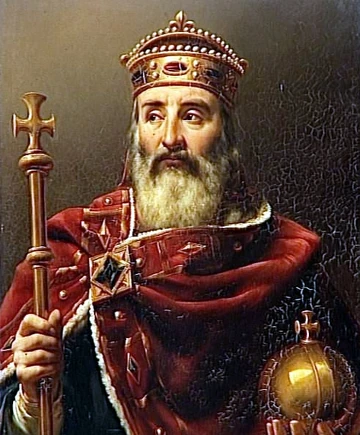

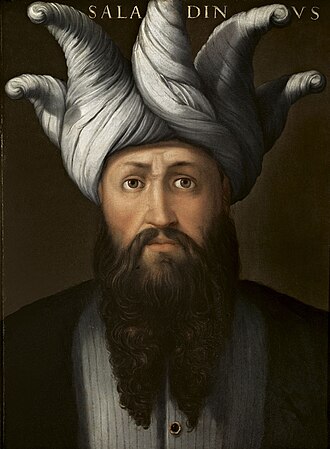
Find Influential Leaders
Search through history's most influential leaders by name, era, achievements, or leadership style
Categories of Influential Leaders Throughout History
The most influential leaders in human history can be categorized by their primary spheres of impact, leadership styles, and the mechanisms through which they changed the world. Understanding these categories helps us analyze the different pathways to historical significance and the various ways individuals can shape civilization. Each category represents distinct approaches to leadership, from the battlefield to the philosophical realm, from the halls of power to grassroots movements.
🏛️ Political Leaders & Statesmen
Masters of governance, diplomacy, and institutional building who shaped nations through political innovation and administrative excellence.
Political leaders like George Washington, Otto von Bismarck, and Lee Kuan Yew transformed their societies through constitutional innovation, diplomatic mastery, and effective governance. These leaders understood that lasting change requires strong institutions, rule of law, and sustainable political systems. They crafted constitutions, established precedents, negotiated treaties, and built governmental frameworks that outlasted their own tenures.
Key characteristics include strategic thinking, consensus-building, institutional knowledge, and the ability to balance competing interests while maintaining long-term vision. Modern examples include figures like Franklin D. Roosevelt, whose New Deal reshaped American government, and Nelson Mandela, who managed South Africa's peaceful transition to democracy through political reconciliation rather than revolutionary upheaval.
⚔️ Military Leaders & Conquerors
Strategic geniuses who changed history through battlefield brilliance, territorial expansion, and military innovation.
Military leaders such as Alexander the Great, Genghis Khan, and Napoleon Bonaparte reshaped the world map through exceptional tactical skills, innovative strategies, and the ability to inspire fierce loyalty among their troops. These leaders understood that military power, when combined with effective administration and cultural integration, could create lasting empires that transcended mere conquest.
Their influence extended far beyond warfare—they facilitated cultural exchange, established trade routes, spread technologies, and created administrative systems that governed diverse populations. Alexander's Hellenistic influence, the Mongol Empire's facilitation of East-West trade, and Napoleon's legal and administrative innovations demonstrate how military leaders often became inadvertent agents of cultural and intellectual progress.
🕊️ Revolutionary Leaders & Freedom Fighters
Visionaries who challenged oppressive systems and led transformative movements for independence, civil rights, and social justice.
Revolutionary leaders like Mahatma Gandhi, Martin Luther King Jr., and Simón Bolívar fundamentally altered society by challenging entrenched power structures and inspiring mass movements for change. These leaders possessed the rare ability to articulate compelling visions of justice, mobilize diverse coalitions, and maintain moral authority even under severe persecution.
Their methods ranged from Gandhi's satyagraha (nonviolent resistance) to Bolívar's military campaigns for Latin American independence. What united them was their capacity to transform individual grievances into universal principles of human dignity, equality, and freedom. Their movements created lasting changes in law, social norms, and political structures while inspiring similar movements worldwide.
📚 Intellectual Leaders & Philosophers
Thinkers whose ideas, discoveries, and philosophical frameworks fundamentally changed human understanding and progress.
While not always holding formal political power, intellectual leaders like Confucius, Aristotle, John Locke, and Karl Marx profoundly influenced human civilization through ideas that shaped political systems, social structures, and cultural values. Their writings and teachings provided the intellectual foundations for governance models, ethical frameworks, and social movements that continue to influence contemporary life.
These leaders understood that ideas have power to transcend time and geography. Confucian principles shaped East Asian societies for millennia, Aristotelian logic influenced Western education, Lockean political theory inspired democratic revolutions, and Marxist economics motivated 20th-century social movements. Their influence demonstrates that leadership can be exercised through intellectual contribution as powerfully as through direct political action.
👑 Monarchs & Imperial Rulers
Sovereign leaders who built empires, established dynasties, and created lasting institutions through absolute authority and visionary governance.
Imperial rulers like Cyrus the Great, Elizabeth I, Catherine the Great, and Emperor Ashoka wielded absolute power to create expansive empires, establish enduring institutions, and implement transformative policies. These leaders combined personal authority with administrative sophistication, cultural patronage, and often, surprising tolerance and wisdom in governing diverse populations.
Their success often stemmed from understanding that effective empire-building required more than military conquest—it demanded cultural sensitivity, administrative efficiency, and the ability to integrate diverse peoples into unified political entities. The Persian Empire's tolerance of local customs, the Elizabethan Age's cultural flowering, and the Mauryan Empire's Buddhist-inspired governance demonstrate how enlightened monarchs could create golden ages of peace, prosperity, and cultural achievement.
✊ Social Reformers & Activists
Champions of human rights, equality, and social justice who transformed societies through moral leadership and grassroots organizing.
Social reformers like Frederick Douglass, Susan B. Anthony, Eleanor Roosevelt, and César Chávez changed history by challenging unjust social systems and expanding human rights. These leaders possessed extraordinary moral courage, communication skills, and the ability to maintain hope and determination despite facing powerful opposition and personal sacrifice.
Their influence often began with local organizing but expanded to transform entire societies. They understood that lasting social change requires changing both laws and hearts, necessitating sustained campaigns that combined legal challenges, public education, moral persuasion, and grassroots mobilization. Their legacies include expanded voting rights, improved working conditions, enhanced civil rights protections, and greater recognition of human dignity across all social groups.
Cross-Category Leadership Traits
While these categories help organize our understanding of influential leaders, the most impactful figures often transcended single categories. Napoleon was both a military genius and political innovator; Gandhi combined social reform with political revolution; Churchill demonstrated both political leadership and wartime command. The greatest leaders possessed versatility, adapting their approaches to changing circumstances while maintaining consistent core principles.
Timeline of Influential Leadership: From Ancient Civilizations to Modern Era
The evolution of leadership throughout human history reveals fascinating patterns of how extraordinary individuals have shaped civilization during pivotal moments. This comprehensive timeline explores the major epochs of influential leadership, examining how changing social, technological, and political contexts created opportunities for different types of leaders to emerge and leave lasting impacts on human development.
Ancient Era: The Dawn of Civilization (3000 BCE - 500 CE)
The Foundation Period - Where Leadership Established the Pillars of Human Civilization
The ancient era witnessed the emergence of humanity's first great leaders who established the fundamental concepts of law, governance, and empire that continue to influence modern society. This period saw the rise of legendary figures like Hammurabi (c. 1792-1750 BCE), whose Code of Hammurabi created the world's first comprehensive legal system, establishing principles of justice, proportional punishment, and governmental authority that influenced legal traditions for millennia.
Pharaoh Hatshepsut (1507-1458 BCE) revolutionized concepts of female leadership, ruling Egypt for 22 years and focusing on trade, building projects, and peaceful prosperity rather than military conquest. Her successful reign challenged gender assumptions about leadership that persisted for thousands of years. Meanwhile, Cyrus the Great (c. 600-530 BCE) founded the Persian Empire with unprecedented tolerance for local customs and religions, creating the Cyrus Cylinder—history's first human rights charter—and establishing models for governing diverse populations that influenced imperial administration throughout history.
Alexander the Great (356-323 BCE) demonstrated how military genius combined with cultural vision could create lasting change, spreading Hellenistic civilization across three continents and facilitating cultural exchange that enriched human knowledge. The period concluded with figures like Augustus Caesar, whose transformation of the Roman Republic into the Roman Empire created governmental structures and legal frameworks that influenced Western civilization for over two millennia.
Classical Period: The Age of Empires and Spiritual Awakening (500-1000 CE)
The Synthesis Period - Where Political Power Met Spiritual Authority and Intellectual Achievement
The classical period marked a crucial phase where political leadership increasingly intersected with religious and intellectual authority, creating leaders who combined temporal power with spiritual guidance and scholarly achievement. This era began with figures like Emperor Constantine (272-337 CE), whose conversion to Christianity and establishment of Constantinople fundamentally altered the relationship between political authority and religious faith, creating the model of Christian monarchy that dominated European politics for over a millennium.
The period saw the rise of Prophet Muhammad (570-632 CE), whose spiritual leadership created not only a major world religion but also a political and social system that rapidly expanded across continents. His combination of religious vision, political acumen, and military strategy created the foundation for Islamic civilization and demonstrated how spiritual authority could generate extraordinary political and cultural influence.
Justinian I (482-565 CE) exemplified the classical synthesis of political and intellectual leadership, commissioning the Corpus Juris Civilis that became the foundation of legal systems worldwide while reconquering much of the former Western Roman Empire. Similarly, Charlemagne (747-814 CE) combined military conquest with educational reform, creating the Carolingian Renaissance that preserved classical knowledge through the Dark Ages and established the template for the Holy Roman Empire. This period demonstrated how effective leaders could create lasting institutions by combining political power with cultural and intellectual patronage.
Medieval Era: The Age of Faith, Feudalism, and Cultural Exchange (1000-1500 CE)
The Integration Period - Where Leaders Navigated Complex Religious, Political, and Cultural Landscapes
The medieval period produced leaders who excelled at managing complex feudal systems, religious conflicts, and increasing cultural exchange between civilizations. This era was dominated by figures who understood that effective leadership required balancing competing authorities—religious and secular, local and imperial, traditional and innovative.
William the Conqueror (1028-1087) revolutionized English society through the Norman Conquest, introducing feudal systems, legal reforms, and administrative innovations that created the foundation of modern English governance. His Domesday Book represented unprecedented governmental organization and information gathering, establishing precedents for systematic administration that influenced bureaucratic development across Europe.
Saladin (1137-1193) embodied the medieval ideal of chivalrous leadership, combining military excellence with diplomatic finesse and religious tolerance. His recapture of Jerusalem and respectful treatment of Christian prisoners established him as a model of honorable leadership that influenced both Islamic and Christian concepts of noble warfare. Meanwhile, figures like Eleanor of Aquitaine (1122-1204) demonstrated how medieval women could exercise significant political influence through strategic marriages, cultural patronage, and diplomatic skill.
The period's most transformative leader was Genghis Khan (1162-1227), whose creation of the Mongol Empire facilitated unprecedented cultural and commercial exchange between East and West. His meritocratic system, religious tolerance, and establishment of the Pax Mongolica created conditions for technological transfer, trade expansion, and cultural synthesis that accelerated human development across continents.
Renaissance & Enlightenment: The Age of Humanism and Reason (1500-1800)
The Innovation Period - Where Leaders Embraced New Ideas, Exploration, and Governmental Experimentation
The Renaissance and Enlightenment periods produced leaders who combined traditional political authority with humanist learning, scientific curiosity, and philosophical innovation. This era marked the transition from medieval to modern concepts of leadership, emphasizing education, cultural achievement, and rational governance.
Elizabeth I of England (1533-1603) exemplified Renaissance leadership by combining political astuteness with cultural patronage, religious pragmatism, and strategic vision. Her defeat of the Spanish Armada secured English independence and maritime dominance, while her support for exploration, arts, and learning created the Elizabethan Golden Age that produced Shakespeare, Marlowe, and the foundations of English cultural supremacy.
Catherine the Great of Russia (1729-1796) demonstrated how Enlightenment principles could be applied to imperial governance. Her legal reforms, educational initiatives, territorial expansions, and correspondence with Voltaire and other philosophers showed how rulers could modernize their societies while expanding their power. Her Nakaz (Instruction) represented one of history's most comprehensive attempts to apply Enlightenment political theory to practical governance.
The period culminated with leaders like George Washington (1732-1799), whose presidency established crucial precedents for democratic governance, peaceful transfer of power, and limited executive authority. His voluntary relinquishment of power after two terms created a model of republican leadership that influenced democratic movements worldwide and demonstrated that effective leadership could be exercised through restraint as much as through assertion of authority.
Industrial & Imperial Age: The Era of Nation-Building and Global Power (1800-1900)
The Expansion Period - Where Leaders Navigated Industrial Revolution, Democratic Movements, and Imperial Competition
The 19th century produced leaders who managed the unprecedented challenges of industrialization, democratic expansion, nationalism, and global imperial competition. This period required leaders who could adapt traditional governance structures to rapidly changing technological, economic, and social conditions while managing increasingly complex international relationships.
Napoleon Bonaparte (1769-1821) dominated the era's beginning, creating legal, administrative, and educational systems that influenced governmental development worldwide. The Napoleonic Code became the foundation for legal systems across Europe and Latin America, while his meritocratic principles, educational reforms, and administrative innovations demonstrated how revolutionary ideals could be institutionalized through effective governance.
Abraham Lincoln (1809-1865) faced the challenge of preserving democratic union during existential crisis, demonstrating how moral leadership could guide nations through fundamental transformations. His management of the Civil War, commitment to emancipation, and articulation of democratic principles in speeches like the Gettysburg Address showed how leaders could maintain national unity while pursuing social justice.
Otto von Bismarck (1815-1898) exemplified 19th-century realpolitik, using diplomatic skill and strategic warfare to unify Germany and create the balance of power system that dominated European politics until World War I. His social welfare programs also pioneered the modern welfare state, demonstrating how conservative leaders could co-opt progressive demands through innovative policy solutions.
The period also saw leaders like Simón Bolívar (1783-1830), whose liberation of South America from Spanish rule created multiple independent nations and established him as "El Libertador." His vision of Latin American unity and republican governance influenced independence movements worldwide and demonstrated how revolutionary leadership could create lasting political change across vast territories.
Modern Era: The Age of Global Challenges and Democratic Leadership (1900-Present)
The Integration Period - Where Leaders Address Global Challenges, Technological Revolution, and Universal Human Rights
The modern era has produced leaders who faced unprecedented global challenges: world wars, decolonization, nuclear weapons, technological revolution, environmental crisis, and globalization. Modern influential leaders have demonstrated that effective leadership in the contemporary world requires understanding complex international systems, managing diverse coalitions, and addressing challenges that transcend national boundaries.
Winston Churchill (1874-1965) embodied wartime leadership, using oratory, strategic vision, and moral courage to sustain British resistance during World War II's darkest moments. His speeches during the Blitz, strategic partnership with Roosevelt and Stalin, and post-war advocacy for European unity demonstrated how democratic leaders could mobilize free societies against totalitarian threats while building foundations for international cooperation.
Mahatma Gandhi (1869-1948) revolutionized concepts of political resistance through satyagraha (nonviolent resistance), proving that moral authority could overcome imperial power and inspiring liberation movements worldwide. His methods influenced the American Civil Rights Movement, anti-apartheid struggle in South Africa, and peaceful democratic transitions across the globe, establishing nonviolence as a powerful tool for social and political change.
Nelson Mandela (1918-2013) demonstrated how leaders could manage peaceful transitions from oppressive systems to democratic governance. His combination of principled resistance during apartheid, strategic negotiation during transition, and reconciliatory leadership as president showed how moral authority and political wisdom could heal divided societies while establishing democratic institutions.
Modern leaders like Franklin D. Roosevelt created the template for activist government during crisis, while figures like Margaret Thatcher and Ronald Reagan demonstrated how conservative leadership could adapt to changing global economic conditions. Contemporary challenges require leaders who can address climate change, technological disruption, global inequality, and international cooperation while maintaining democratic legitimacy and social cohesion.
Patterns and Lessons from Leadership Timeline
This historical timeline reveals several consistent patterns: influential leaders often emerge during periods of crisis or transition, they successfully adapt to the technological and social conditions of their times, they build institutions that outlast their personal tenure, and they possess the vision to see beyond immediate challenges to longer-term possibilities. Understanding these patterns helps contemporary leaders develop strategies for addressing modern challenges while learning from history's most successful examples of transformational leadership.
Essential Qualities of Influential Leaders: The Science and Art of Transformational Leadership
What separates ordinary leaders from those who change the course of history? Through analysis of history's most influential leaders, we can identify specific qualities, skills, and characteristics that enable certain individuals to achieve extraordinary impact. These essential leadership qualities transcend time periods, cultures, and contexts, representing universal principles of human influence and organizational transformation.
Modern leadership research, combined with historical analysis, reveals that influential leaders possess a unique combination of cognitive abilities, emotional intelligence, moral courage, and strategic thinking that allows them to navigate complex challenges while inspiring others to achieve seemingly impossible goals. Understanding these qualities provides valuable insights for contemporary leaders seeking to maximize their positive impact.
Visionary Leadership & Strategic Foresight
The ability to envision compelling futures and create strategic pathways to achieve transformational goals.
Visionary leaders like Martin Luther King Jr., John F. Kennedy, and Steve Jobs possessed the rare ability to articulate compelling visions of the future that motivated millions to work toward seemingly impossible goals. They understood that effective leadership requires painting vivid pictures of better worlds while providing concrete steps for achieving those visions.
Strategic foresight involves understanding long-term trends, anticipating challenges and opportunities, and making decisions that position organizations or movements for future success. Leaders like Otto von Bismarck demonstrated masterful strategic thinking by creating diplomatic systems that maintained European peace for decades, while figures like Lee Kuan Yew transformed Singapore through long-term planning and strategic economic development.
Research shows that visionary leaders communicate their goals through storytelling, metaphors, and symbolic actions that make abstract concepts tangible and inspiring. They also possess the patience to pursue long-term objectives while managing short-term pressures and setbacks.
Moral Courage & Principled Decision-Making
The strength to make difficult decisions based on principles rather than convenience, even when facing severe opposition or personal cost.
Moral courage distinguishes truly influential leaders from mere power-holders. Leaders like Winston Churchill, who stood against appeasement of Nazi Germany when it was unpopular, and Harriet Tubman, who repeatedly risked her life leading enslaved people to freedom, demonstrated that principled leadership often requires taking stands that initially appear impossible or politically dangerous.
This quality involves the willingness to sacrifice personal gain for larger principles, the ability to make unpopular decisions when they serve the greater good, and the strength to maintain integrity under pressure. Abraham Lincoln's decision to issue the Emancipation Proclamation despite political risks exemplifies how moral courage can drive historical transformation.
Modern research indicates that principled leaders build trust and credibility that enables them to mobilize support during crises. Their consistency between values and actions creates the moral authority necessary for inspiring others to make significant sacrifices for shared goals.
Strategic Intelligence & Systems Thinking
The capacity to analyze complex situations, understand systemic relationships, and develop comprehensive strategies for achieving objectives.
Strategic intelligence encompasses multiple cognitive abilities: analytical thinking, pattern recognition, situational awareness, and the ability to synthesize information from diverse sources. Leaders like Napoleon Bonaparte and Dwight D. Eisenhower excelled at military strategy, while figures like Franklin D. Roosevelt and Deng Xiaoping demonstrated strategic thinking in economic and political transformation.
Systems thinking involves understanding how different elements of complex organizations or societies interact, recognizing unintended consequences, and designing interventions that account for systemic complexity. Catherine the Great's reforms of Russian legal and educational systems exemplify how strategic leaders implement comprehensive changes rather than isolated policies.
Contemporary neuroscience research reveals that strategic thinkers excel at executive function, working memory, and cognitive flexibility—abilities that can be developed through practice, education, and experience. They also possess what psychologists term "cognitive complexity," enabling them to hold multiple perspectives simultaneously and find creative solutions to complex problems.
Charismatic Communication & Emotional Intelligence
The magnetic ability to inspire, persuade, and connect with others through compelling communication and deep understanding of human emotions.
Charismatic leaders like John F. Kennedy, Ronald Reagan, and Barack Obama possessed exceptional communication skills that enabled them to inspire confidence, articulate complex ideas simply, and create emotional connections with diverse audiences. Their effectiveness stemmed from understanding that leadership is fundamentally about human relationships and emotional engagement.
Emotional intelligence—the ability to understand and manage both personal emotions and those of others—enables leaders to build coalitions, resolve conflicts, and maintain team cohesion during stressful periods. Leaders like Nelson Mandela demonstrated extraordinary emotional intelligence by managing his own emotions during 27 years of imprisonment while later facilitating national reconciliation.
Research in social psychology shows that charismatic leaders use specific communication techniques: vivid imagery, personal anecdotes, rhetorical questions, and inclusive language that creates shared identity. They also demonstrate authenticity, vulnerability, and genuine concern for others, which builds trust and emotional connection essential for sustained influence.
Integrity & Authentic Leadership
The unwavering consistency between personal values, public statements, and actual behavior that builds trust and credibility necessary for sustained influence.
Integrity represents the foundation of sustainable leadership influence. Leaders like George Washington, who voluntarily relinquished power after two presidential terms, and Mahatma Gandhi, who lived according to the principles he advocated, demonstrated that authentic leadership requires personal consistency and moral credibility.
Authentic leaders understand that their personal behavior serves as a model for others and that any gap between stated values and actual actions undermines their ability to inspire and influence. This quality involves self-awareness, honesty about personal limitations, willingness to admit mistakes, and commitment to continuous personal growth and learning.
Organizational psychology research demonstrates that authentic leaders create more engaged, committed, and productive followers. Their transparency and consistency reduce uncertainty, build psychological safety, and enable others to take calculated risks in pursuit of shared objectives. This creates positive organizational cultures that amplify leadership effectiveness.
Resilience & Adaptive Leadership
The ability to recover from setbacks, learn from failures, and adapt strategies based on changing circumstances while maintaining focus on core objectives.
Resilient leaders like Eleanor Roosevelt, who transformed personal adversity into advocacy for human rights, and Ernest Shackleton, who led his crew through extraordinary Antarctic survival challenges, demonstrate that setbacks often create opportunities for demonstrating leadership character and building deeper credibility.
Adaptive leadership involves recognizing when existing strategies are no longer effective, experimenting with new approaches, and learning from both successes and failures. Leaders like Franklin D. Roosevelt showed exceptional adaptability by trying multiple approaches to address the Great Depression until finding effective solutions through the New Deal programs.
Psychological research on resilience reveals that it can be developed through practices such as cognitive reframing, social support networks, stress management techniques, and maintaining perspective during difficult periods. Resilient leaders also demonstrate what researchers call "post-traumatic growth"—using challenging experiences to develop greater wisdom, empathy, and effectiveness.
Collaborative Leadership & Team Building
The skill to identify, develop, and coordinate talented individuals while creating collaborative environments that maximize collective achievement.
Even the most capable leaders recognize that sustainable success requires building strong teams and developing other leaders. George Washington excelled at identifying and utilizing the talents of individuals like Alexander Hamilton and Thomas Jefferson, while leaders like Katherine Johnson (though not in formal leadership roles) demonstrated how collaborative approaches can solve complex problems more effectively than individual efforts.
Collaborative leaders understand that diversity of perspectives, skills, and experiences enhances decision-making and problem-solving. They create inclusive environments where team members feel valued, heard, and empowered to contribute their best work. This involves active listening, conflict resolution skills, and the ability to synthesize different viewpoints into coherent strategies.
Modern research on team dynamics shows that collaborative leaders foster psychological safety, encourage constructive dissent, and create shared accountability systems that enable teams to achieve extraordinary results. They also excel at succession planning, ensuring that their organizations or movements can continue thriving beyond their personal involvement.
Decisiveness & Crisis Management
The capacity to make timely, well-informed decisions under pressure while managing uncertainty and leading effectively during crises.
Crisis situations often reveal true leadership character and capabilities. Leaders like Harry S. Truman, who made the difficult decision to use atomic weapons to end World War II, and Angela Merkel, who managed multiple European crises including the 2008 financial crisis and refugee crisis, demonstrate that influential leaders must be able to make consequential decisions with incomplete information under intense pressure.
Effective crisis management involves rapid information gathering, stakeholder consultation, clear communication, and the ability to maintain calm while projecting confidence. It also requires understanding when to make quick decisions versus when to gather additional information, and how to learn from decision outcomes to improve future judgment.
Research in decision science shows that effective leaders use structured decision-making processes, consider multiple scenarios, and maintain decision-making frameworks that work under pressure. They also understand the psychological and emotional aspects of crisis leadership, providing stability and hope when others feel overwhelmed by uncertainty and change.
Developing These Leadership Qualities
While some individuals may have natural predispositions toward certain leadership qualities, research consistently shows that these characteristics can be developed through deliberate practice, education, mentoring, and real-world experience. The most effective approach involves self-assessment to identify current strengths and growth areas, followed by targeted development activities such as leadership training, challenging assignments, mentoring relationships, and regular feedback from trusted advisors.
Historical analysis reveals that many influential leaders developed their capabilities through diverse experiences that tested and refined their abilities. Military service, educational challenges, early career setbacks, and exposure to different cultures and perspectives all contributed to their leadership development. Contemporary leaders can accelerate their growth by seeking similar diverse experiences while focusing on continuous learning and self-improvement.
Leadership Styles and Their Impact
Throughout history, influential leaders have employed various leadership styles to achieve their goals and leave lasting impacts. Understanding these different approaches provides insights into the diverse paths to effective leadership and the context-dependent nature of successful leadership strategies.
Transformational Leadership
Examples: Nelson Mandela, Franklin D. Roosevelt, Mahatma Gandhi
Transformational leaders inspire and motivate followers to achieve extraordinary outcomes by appealing to their higher-order needs and values. They create a vision for change, develop followers into leaders, and build trust through personal integrity. These leaders often emerge during times of crisis or significant social change.
Autocratic Leadership
Examples: Napoleon Bonaparte, Julius Caesar, Catherine the Great
Autocratic leaders maintain strict control over decision-making and expect compliance from followers. While this style can be effective in crisis situations or when quick decisions are needed, successful autocratic leaders often combined firm control with genuine concern for their people's welfare and long-term prosperity.
Democratic Leadership
Examples: Abraham Lincoln, George Washington, Winston Churchill
Democratic leaders involve followers in decision-making processes while maintaining final authority. They encourage participation, value input from others, and build consensus when possible. This style is particularly effective in situations requiring innovation, commitment, and buy-in from multiple stakeholders.
Servant Leadership
Examples: Mahatma Gandhi, Martin Luther King Jr., Mother Teresa
Servant leaders prioritize the needs of their followers and communities above their own interests. They focus on empowering others, building community, and creating positive change through service. This style often characterizes leaders of social movements and humanitarian causes.
Charismatic Leadership
Examples: John F. Kennedy, Winston Churchill, Alexander the Great
Charismatic leaders rely on their personal charm, communication skills, and emotional appeal to influence followers. They often articulate compelling visions and inspire devotion through their personality and speaking ability. However, the effectiveness of charismatic leadership often depends on the leader's character and intentions.
Strategic Leadership
Examples: Otto von Bismarck, Theodore Roosevelt, Lee Kuan Yew
Strategic leaders excel at long-term planning, analysis of complex situations, and making decisions that position their organizations or nations for future success. They balance multiple competing interests and considerations while maintaining focus on overarching objectives.
Lessons from History's Greatest Leaders
The Power of Persistence
Leaders like Winston Churchill and Abraham Lincoln faced numerous setbacks and failures before achieving their greatest successes. Churchill's early political career included several defeats, and Lincoln lost multiple elections before becoming president. Their persistence in the face of adversity demonstrates the importance of resilience and long-term commitment to achieving meaningful goals.
Moral Leadership Matters
Leaders who combined power with strong moral principles, such as Nelson Mandela and Mahatma Gandhi, achieved lasting positive change that continues to inspire generations. Their commitment to justice, equality, and nonviolence proved that ethical leadership can be more powerful than force or coercion in creating sustainable transformation.
Innovation and Adaptation
Successful leaders like Catherine the Great and Franklin D. Roosevelt demonstrated the importance of innovation and adaptation in leadership. They were willing to experiment with new approaches, learn from other cultures and systems, and modify their strategies based on changing circumstances and new information.
Communication Excellence
Great leaders throughout history have been exceptional communicators. From Julius Caesar's writings to Martin Luther King Jr.'s speeches, effective leaders understand how to articulate their vision, inspire their followers, and persuade others to support their cause. The ability to communicate clearly and persuasively remains essential for leadership success.
Building Strong Teams
Even the most capable leaders recognize the importance of surrounding themselves with talented advisors and supporters. Leaders like George Washington and Theodore Roosevelt excelled at identifying and developing talent, delegating effectively, and creating teams that could execute their vision successfully.
Understanding Context
Effective leaders understand their historical moment and adapt their approach accordingly. What worked for Alexander the Great in ancient times would not necessarily work today, but the underlying principles of vision, courage, and strategic thinking remain relevant across different eras and contexts.
Frequently Asked Questions About Influential Leaders
The Evolution of Leadership Through the Ages
Leadership has evolved significantly throughout human history, adapting to changing social structures, technologies, and global challenges. Understanding this evolution helps us appreciate how leadership concepts have developed and what lessons remain relevant for contemporary leaders.
Ancient Leadership: Divine Right and Personal Authority
In ancient civilizations, leaders often claimed divine authority or ruled through personal charisma and military might. Pharaohs, kings, and emperors like Cyrus the Great and Alexander the Great established their legitimacy through conquest, religious sanction, or hereditary claims. Leadership was highly personalized, with the leader's character and decisions directly shaping the fate of entire civilizations.
Medieval Leadership: Feudalism and Religious Authority
Medieval leadership was characterized by complex feudal hierarchies and the significant influence of religious institutions. Leaders like Charlemagne and William the Conqueror operated within systems that balanced temporal and spiritual power. Leadership legitimacy came from a combination of noble birth, religious approval, and military capability, with elaborate ceremonies and traditions reinforcing authority.
Renaissance Leadership: Humanism and Diplomacy
The Renaissance brought new concepts of leadership that emphasized education, cultural patronage, and diplomatic skill. Leaders like the Medici rulers and Elizabeth I combined political power with support for arts and learning. This period saw the rise of more sophisticated diplomatic relations and the idea that leaders should be well-educated and culturally refined.
Enlightenment Leadership: Reason and Constitutional Authority
Enlightenment thinking introduced concepts of rational governance, constitutional limits on power, and leaders' accountability to the people. Leaders like George Washington and Thomas Jefferson embodied these new ideals, establishing precedents for democratic leadership and peaceful transfer of power that continue to influence modern governance.
Industrial Age Leadership: Organization and Mass Communication
The Industrial Revolution created new challenges and opportunities for leaders, who had to manage larger, more complex organizations and communicate with broader audiences. Leaders like Abraham Lincoln and Otto von Bismarck used new technologies like telegraphs and railways to extend their influence, while also developing new forms of mass communication and political organization.
Modern Leadership: Media, Globalization, and Collaboration
Contemporary leadership operates in an interconnected, media-saturated world where leaders must navigate global challenges, diverse stakeholders, and rapid technological change. Modern influential leaders like Nelson Mandela and Mahatma Gandhi have shown how moral authority and collaborative approaches can be more effective than traditional authoritarian methods in creating lasting change.
Geographic Distribution of Influential Leaders
Throughout history, influential leaders have emerged from every continent and culture, each contributing unique perspectives and approaches to leadership. This global distribution of leadership excellence demonstrates that great leadership transcends cultural, ethnic, and geographic boundaries.
European Leaders
Notable Examples: Napoleon Bonaparte, Winston Churchill, Elizabeth I, Otto von Bismarck, Catherine the Great
European leaders have significantly influenced global politics, warfare, and governance systems. From the Roman Empire to modern democratic institutions, European leadership concepts have spread worldwide through colonization, trade, and cultural exchange. The continent has produced leaders who excelled in military strategy, political innovation, and diplomatic relations.
Asian Leaders
Notable Examples: Genghis Khan, Cyrus the Great, Saladin, Emperor Meiji, Lee Kuan Yew
Asian leaders have created some of history's largest empires and most sophisticated governmental systems. From the Persian Empire's tolerance and administrative efficiency to China's bureaucratic innovations and Japan's rapid modernization, Asian leadership has emphasized long-term thinking, cultural synthesis, and adaptive governance strategies.
American Leaders
Notable Examples: George Washington, Abraham Lincoln, Franklin D. Roosevelt, Martin Luther King Jr., Simon Bolívar
American leaders have pioneered democratic governance, federal systems, and civil rights movements. From the founding fathers who established constitutional democracy to civil rights leaders who expanded equality, American leadership has emphasized individual rights, democratic processes, and the peaceful resolution of conflicts through legal and political means.
African Leaders
Notable Examples: Nelson Mandela, Cleopatra VII, Shaka Zulu, Haile Selassie, Kwame Nkrumah
African leaders have demonstrated exceptional skills in unifying diverse populations, resisting colonialism, and building modern nations. From ancient Egyptian pharaohs to modern independence leaders, African leadership has emphasized community building, resistance to oppression, and the integration of traditional values with modern governance.
Middle Eastern Leaders
Notable Examples: Saladin, Cyrus the Great, Harun al-Rashid, Golda Meir, Mustafa Kemal Atatürk
Middle Eastern leaders have shaped religious, cultural, and political developments that influenced the entire world. From ancient Persian tolerance to Islamic golden age leadership and modern nation-building, Middle Eastern leaders have excelled in cultural synthesis, religious leadership, and managing diverse populations in strategic geographic locations.
Oceanic Leaders
Notable Examples: King Kamehameha I, Queen Liliuokalani, Sir Edmund Hillary (as expedition leader)
Leaders from Oceania, while fewer in global historical records, have demonstrated unique approaches to leadership that emphasize environmental harmony, community consensus, and sustainable resource management. Pacific Island leaders developed sophisticated navigation and resource management systems that sustained their societies for centuries.
Discover Your Leadership Style!
Now that you've learned about history's most influential leaders, discover which legendary leader you resemble most! Take our free Historical Leaders Personality Quiz and uncover your unique leadership style, strengths, and potential.
🎯 100% Free
No sign-up required
⚡ Instant Results
Get results immediately
📊 Detailed Analysis
Comprehensive personality breakdown
